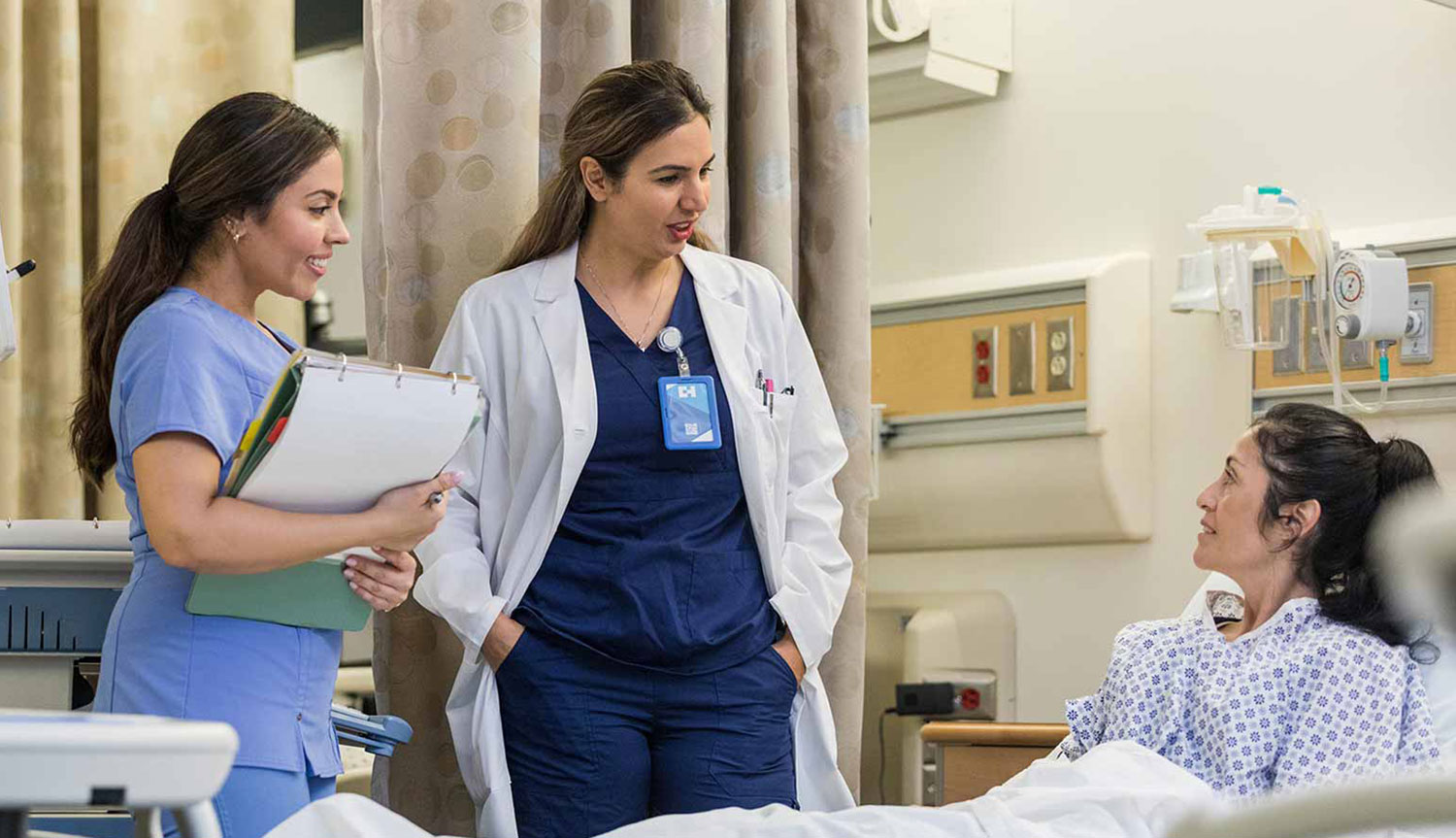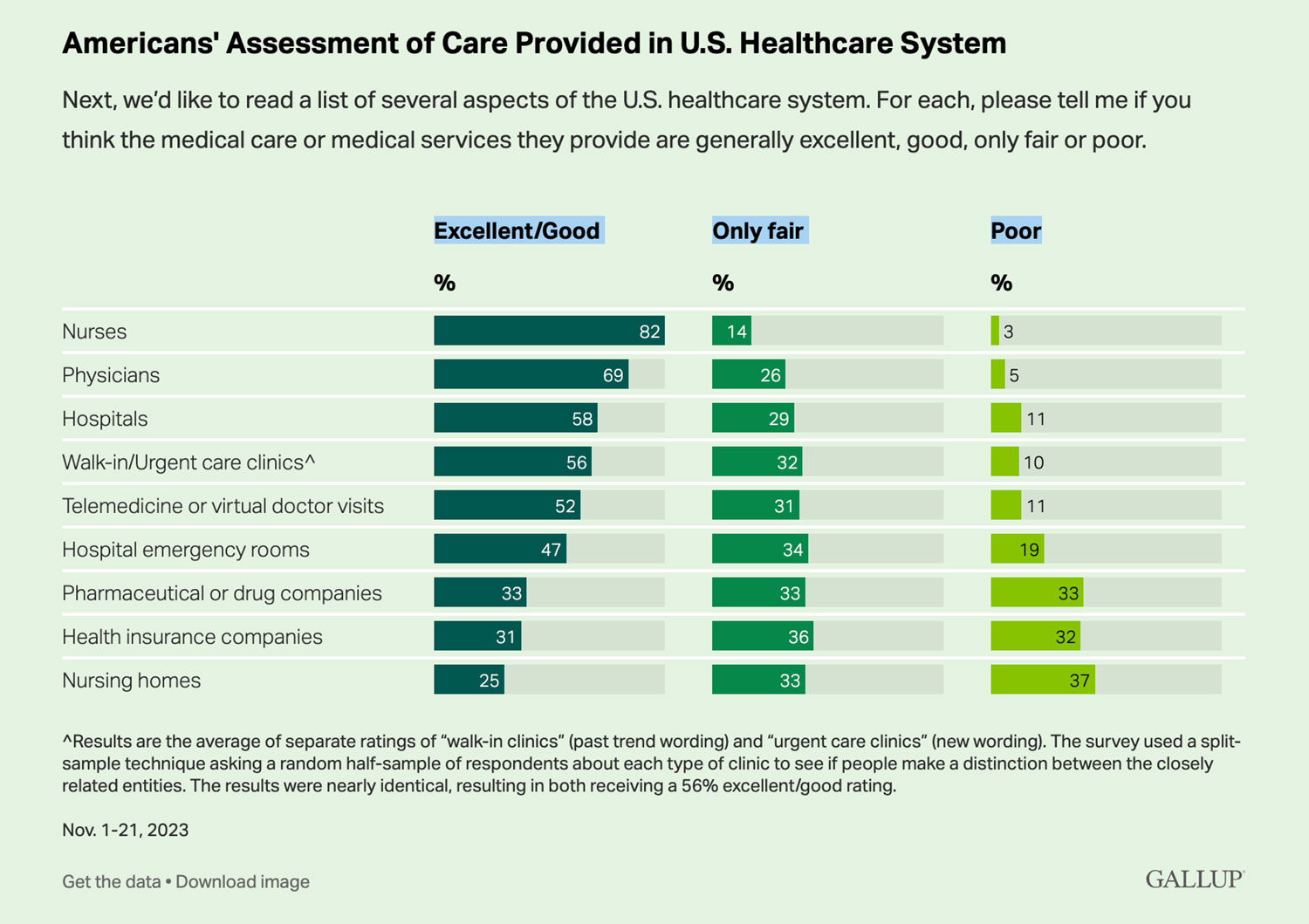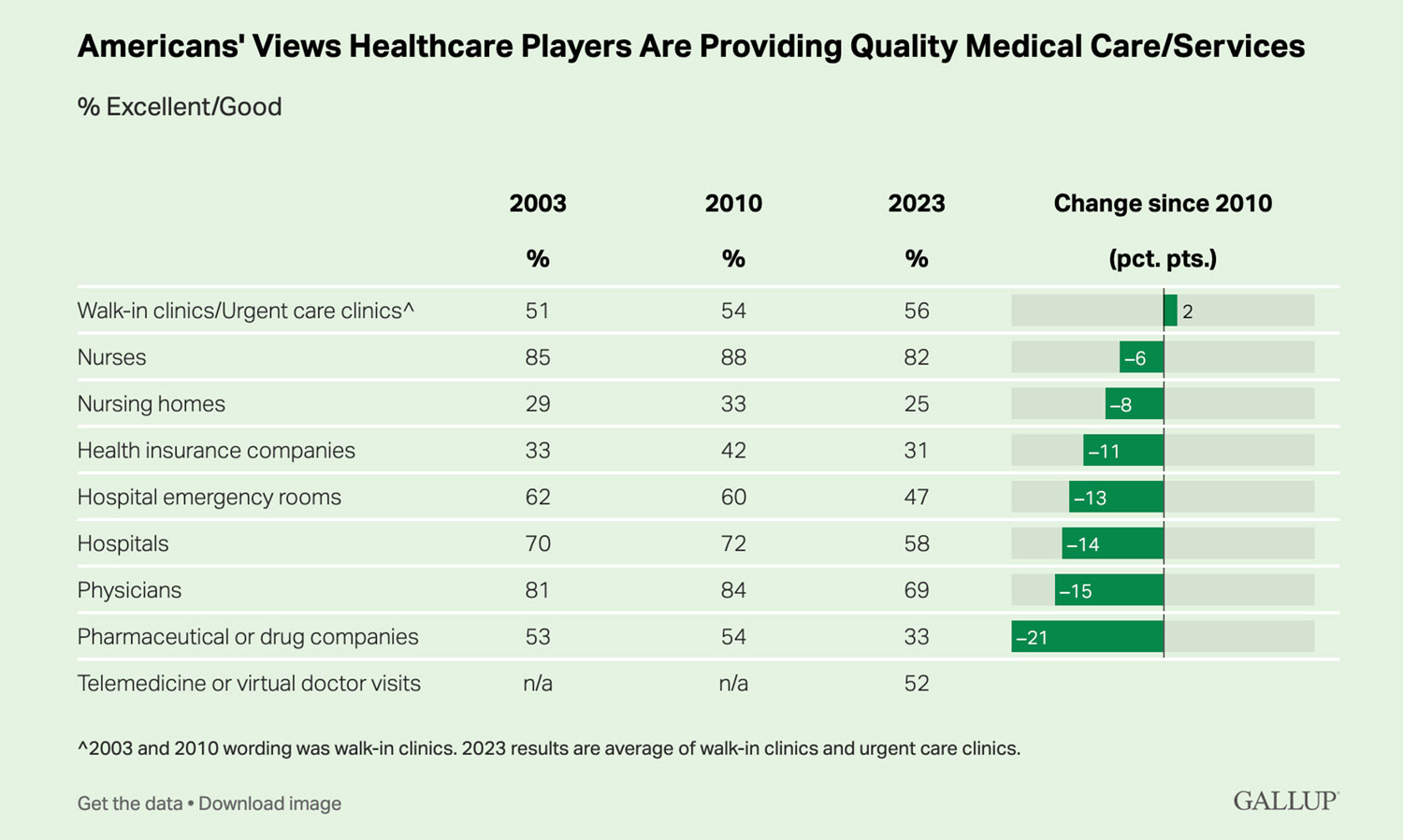Nurses First, Doctors Distant Second in Healthcare Provider Ratings
BY LYDIA SAAD
WASHINGTON, D.C. — At the end of a year when Gallup found Americans’ confidence in the U.S. medical system at its lowest in a decade, a new survey reveals that some prominent players in the system are still widely acclaimed while others are not.
Nurses receive the best rating by far, with 82% saying they provide excellent or good medical care, and doctors rank second at 69%. Smaller majorities feel positive about the care provided by hospitals (58%), walk-in or urgent care clinics (56%), and telemedicine or virtual doctor visits (52%).

Meanwhile, less than half of Americans give positive ratings to the four remaining healthcare entities measured: hospital emergency rooms (47%), pharmaceutical or drug companies (33%), health insurance companies (31%), and nursing homes (25%).

These results are from Gallup’s 2023 Health and Healthcare survey, conducted Nov. 1-21.
Most adults not rating the top-scoring providers’ care, as well as emergency room care, as excellent or good generally rate it “only fair,” while no more than 11% rate it “poor.”
However, the same cannot be said for pharmaceutical companies, health insurance companies or nursing homes. The poor ratings for these (ranging from 32% to 37%) are as high or higher than those rating them only fair.
Consistent with Americans’ skepticism about nursing home care, a West Health-Gallup poll conducted earlier this year found seven in 10 Americans resistant to living in a nursing home should they ever become unable to care for themselves, with most citing skepticism about the quality of care as their top reason.
Nurses’ and Doctors’ Medical Care Ratings Echo Honesty and Ethics Poll
Nurses’ top rank among healthcare providers underscores their premier position among U.S. occupations, generally, in Gallup’s annual honesty and ethics of professions ratings. Most recently, in December 2022, nurses led the list of 18 professions rated, with 79% of Americans saying they had “very high” or “high” honesty and ethical standards. Medical doctors ranked second, at 62%.
Similarly, the pharmaceutical industry’s low ranking among healthcare entities aligns with its position among all major industries in the country. Gallup’s August measure of 25 U.S. business and industry sectors found the pharmaceutical industry rated last, with just 18% holding a positive view of it, 60% a negative view, and 21% feeling neutral about it.
Nurses Maintain High Rating, While Other Provider Scores Shrink
Not only are nurses widely respected for the care they provide, but they have avoided the steep decline in ratings that has befallen much of their industry.
Gallup twice previously asked Americans to rate the medical care provided by various healthcare entities, in 2003 and 2010, finding little change in the ratings of most of them over those seven years. Since then, however, positive perceptions are sharply lower for most. The exceptions are walk-in clinics — whose rating is roughly the same as 2010 — and nurses, who are six percentage points lower than in 2010.
By contrast, the percentage of Americans saying pharmaceutical companies provide excellent or good service is 21 points lower today. Likewise, assessments are now lower for physicians (-15 points), hospitals (-14 points), hospital emergency rooms (-13 points), health insurance companies (-11 points) and nursing homes (-8 points).

Much has occurred since 2010 that could account for these changes, including higher healthcare costs, the opioid crisis, the coronavirus pandemic, the associated controversy over mandating COVID-19 vaccines and, more recently, healthcare staff shortages.
Whatever the reason, two results of these changes are that doctors now lag nurses in acclaim and hospital emergency rooms have fallen behind walk-in or urgent care clinics in perceptions of quality care.
While the slight majority of Americans believe telemedicine provides excellent or good care, almost on par with the 56% saying the same of walk-in clinics, the rate is still far less than for physicians per se, indicating that consumers sense something is missing in the virtual healthcare experience.
